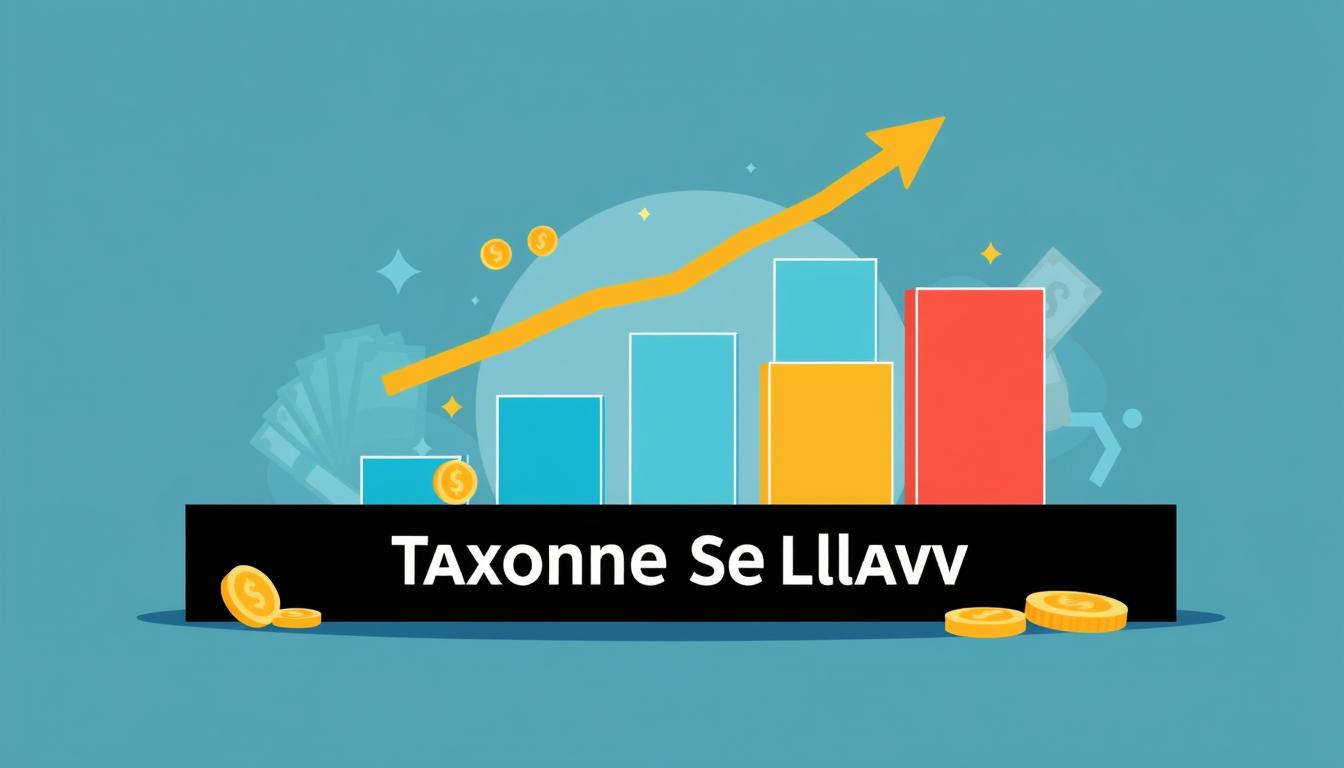The assessment year is key in income tax. Knowing its importance helps with tax planning. The financial year runs from April 1 to March 31. The assessment year is when you pay taxes on income from the previous year.
For instance, income from 2023-24 is taxed in 2024-25. It’s vital to know the difference between financial and assessment years. This ensures you follow tax laws.
Key Takeaways
- The assessment year is the year in which income earned in a particular financial year is taxed.
- The financial year starts from April 1 and ends on March 31.
- Understanding the assessment year is essential for effective tax planning.
- The assessment year is closely related to the financial year, with the assessment year being the year following the financial year.
- Taxpayers can file an updated return within 24 months from the end of the relevant assessment year.
- The last date for filing belated income tax returns was January 15, and updated returns can be filed by March 31, 2027, for the assessment year 2024-25.
- Taxpayers have until July 31, 2024, to file the original ITR or until January 15, 2025, for the belated ITR for the assessment year 2024-25.
Understanding Assessment Year in Income Tax
The assessment year in income tax is key for anyone dealing with taxes. It’s the year when income from the previous year is taxed. In India, the financial year runs from April 1 to March 31. So, 2024-25 starts on April 1, 2024, and ends on March 31, 2025.
The year after the financial year is when taxes are assessed. For example, taxes for 2023-24 income are paid in 2024-25. Knowing about the assessment year in income tax and what is financial year helps with taxes and filing returns.
Basic Definition and Concept
The assessment year is a core part of the tax system. It’s important to grasp its basics for good tax planning. It includes the financial year, the assessment year, and the previous year. Understanding what is assessment year helps in figuring out taxes and following tax rules.
Importance in Tax Planning
The assessment year is vital for tax planning. It affects how much tax you pay. Knowing about the assessment year and its parts is key for correct tax figures and following rules. The deadline for tax returns is July 31 of the assessment year. Filing on time avoids fines.
Key Components of Assessment Year
The main parts of the assessment year are:
- Financial Year: The year income is made.
- Assessment Year: The year income is taxed.
- Previous Year: The year before the assessment year.
Grasping these parts is essential for smart tax planning and following rules. By understanding the assessment year and its parts, you can figure out your taxes and file on time.
The Relationship Between Financial Year and Assessment Year
In India, the financial year runs from April 1st to March 31st of the next year. This period is key for tax calculations. It sets the stage for the assessment year, which is the year after the financial year for income assessment and tax calculation.
The link between the financial year in India and the assessment year is clear: the assessment year comes after the financial year. For instance, the financial year 2023-24 will lead to the assessment year 2024-25. Knowing this is vital for correct tax calculation and following the rules.
Here are the main points about the financial year and assessment year:
- The financial year begins on April 1st and ends on March 31st of the following year.
- The assessment year also starts on April 1st and ends on March 31st of the next year, right after the financial year.
- The financial year in India is the basis for the assessment year. This is when income is taxed.
To sum up, the financial year and assessment year are two different parts of India’s income tax system. The financial year is when income is made, and the assessment year is when it’s taxed. It’s important to understand their connection for accurate tax handling and following the rules.
| Financial Year | Assessment Year |
|---|---|
| 2023-24 | 2024-25 |
| 2022-23 | 2023-24 |
How Assessment Years Are Calculated in India
In India, the assessment year is tied to the financial year. This year runs from April 1st to March 31st of the next year. For instance, income from 2023-24 is assessed in 2024-25.
Knowing the timeline for assessment years is key. It starts on April 1st and ends on March 31st of the next year. There are different periods, like the previous year, the assessment year, and the financial year end.
To figure out the assessment year, you need to understand these periods and tax laws. The financial year ends on March 31st. Then, the assessment year starts on April 1st of the next year. Knowing the current assessment year is vital for figuring out taxes.
Assessment Year Timeline
The timeline for the assessment year is as follows:
- April 1st: Start of the assessment year
- March 31st: End of the assessment year
- July 31st: Due date for filing income tax returns for individuals and certain entities
Different Types of Assessment Periods
There are different types of assessment periods, including:
- Previous year: The year in which the income was earned
- Assessment year: The year in which the income is assessed
- Financial year end: The end of the financial year, which marks the start of the assessment year
Critical Dates and Deadlines in an Assessment Year
It’s vital to know the key dates and deadlines in an assessment year. This is true for both individuals and businesses to follow tax laws. The current financial year has several important deadlines. One major one is the deadline for filing income tax returns, which is usually on July 31st of the assessment year.
To figure out which financial year is this, it’s important to understand the financial year and assessment year relationship. The financial year is when you earn income. The assessment year is when you pay taxes on that income.
Some important deadlines to remember are:
- January 15, 2025: Last date to file a belated or revised income tax return (ITR) for financial year 2023-2024
- March 15, 2025: Deadline for third installment of Advance Tax Payment for AY 2025-26
- March 31, 2025: Deadline for filing Country-by-Country Reporting (Form 3CEAD) for FY 2023-24
It’s important to keep track of these deadlines to avoid fines. Fines can be from Rs 1,000 to Rs 5,000, based on your income. Also, you might face interest under Section 234A on unpaid taxes. This interest is 1% per month from the original due date until you file.
Understanding Tax Filing Requirements Based on Assessment Year
The assessment year in income tax is key for tax filing needs. Knowing what the assessment year is helps follow tax laws. In India, the financial year is from April 1st to March 31st. The assessment year then follows this.
People with high incomes must file tax returns. Senior citizens get a tax break of Rs. 3,00,000, and those over 80 get Rs. 5,00,000. The deadline for filing is July 31st of the assessment year.
To file taxes, you need to show your income, deductions, and exemptions. Avoid mistakes like wrong tax calculations, missing documents, and late filing. Knowing your tax filing needs helps avoid penalties and makes filing easier.
Who Needs to File Returns
- Individuals with taxable income above Rs. 2.5 lakhs
- Senior citizens with taxable income above Rs. 3 lakhs
- Super senior citizens with taxable income above Rs. 5 lakhs
Documentation Requirements
To file taxes, you must show your income, deductions, and exemptions. This includes salary slips, Form 16, and investment proofs.
Common Filing Mistakes to Avoid
Don’t make mistakes like wrong tax calculations, missing documents, and late filing. Make sure your tax calculations are right and your documents are complete to avoid penalties.
Impact of Assessment Year on Tax Calculations
The financial year starts from April 1st and ends on March 31st of the next year. Knowing the assessment year meaning is key for tax calculations. The current financial year has brought new rules for taxes. It’s important to understand these changes for correct tax calculation and following the rules.
For FY 2024-25, the assessment year (AY) is 2025-26. The New Tax Regime is the default for taxpayers unless they choose the Old Tax Regime. The income tax slabs for the New Tax Regime in FY 2024-25 are as follows:
- Up to ₹3,00,000: Nil
- ₹3,00,001 to ₹7,00,000: 5%
- ₹7,00,001 to ₹10,00,000: 10%
- ₹10,00,001 to ₹12,00,000: 15%
- ₹12,00,001 to ₹15,00,000: 20%
- Above ₹15,00,000: 30%
The standard deduction for salaried employees under the New Tax Regime has gone up from ₹50,000 to ₹75,000. Family pension deduction has also increased from ₹15,000 to ₹25,000. These changes will affect tax calculations, and knowing the assessment year meaning is vital for following the rules.
It’s important to remember that the current financial year has brought these changes. Taxpayers need to know the financial year starts from date for accurate tax calculations. The assessment year meaning is key in figuring out tax liability. Understanding these changes is essential for taxpayers.
Special Considerations for Different Types of Income
When it comes to taxes in India, different incomes have their own rules. It’s important to know these rules to pay the right amount of taxes.
In India, salaries are taxed based on how much you earn. Business profits and losses also affect your taxes. Even investments like interest and dividends are taxed based on your income level. For example, the tax rates for FY 2024-25 (AY 2025-26) have changed, impacting how much you’ll pay in taxes.
Salary Income
Salaries come with tax deductions. The standard deduction for those who earn a salary has gone up from ₹50,000 to ₹75,000. This change means more money stays in your pocket when you file your taxes.
Business Income
Businesses are taxed on their profits and losses. There’s a special rule for small businesses. They can pay taxes on 50% of their income, under certain conditions. This rule applies if your business makes up to ₹50 lakh a year. If you use bank channels for 95% of your sales, you can make up to ₹75 lakh.
Investment Income
Income from investments, like interest and dividends, is taxed too. The tax rate depends on the investment and your income level. For instance, interest from fixed deposits is taxed based on your income bracket.
| Type of Income | Taxation |
|---|---|
| Salary Income | Taxed based on slab rates |
| Business Income | Taxed based on profit and loss account |
| Investment Income | Taxed based on slab rates |
In conclusion, knowing how different incomes are taxed is key to paying the right amount of taxes in India.
Changes in Assessment Year Rules and Regulations
The rules for the assessment year in income tax change often. It’s important to keep up with these changes to stay compliant. For example, the tax calculation rules have been updated, and new tax slabs have been introduced. The new tax regime has altered the rules for the assessment year, with tax rates ranging from 0% to 30% based on income.
Understanding what is financial year is key. The financial year runs from April 1 to March 31. It’s the period used to figure out the assessment year. The assessment year is when the income from the financial year is taxed.
Recent Updates
Recently, the standard deduction for salaried workers and family pensioners has been raised. Now, the standard deduction is ₹75,000 for salaried workers and ₹25,000 for pensioners. Also, the limit for employer contributions to the National Pension System (NPS) has been increased to 14% of basic salary.
Upcoming Changes
Changes are coming, including a new timeline for the assessment year and new filing requirements. The Direct Tax Code is expected to simplify the Income Tax Act, which is 63 years old. There will also be new deductions and exemptions for health insurance premiums, currently capped at Rs 50,000 for individuals and Rs 100,000 for senior citizens.
| Income Tax Slab | Tax Rate |
|---|---|
| ₹0–3,00,000 | 0% |
| ₹3,00,001–7,00,000 | 5% |
| ₹7,00,001–10,00,000 | 10% |
| ₹10,00,001–12,00,000 | 15% |
| ₹12,00,001–15,00,000 | 20% |
| ₹15,00,001 and above | 30% |
Common Mistakes to Avoid During Assessment Year
As the financial year end gets closer, it’s key to grasp the assessment year meaning. This knowledge helps in tax calculations. The current assessment year means you must file your taxes right, avoiding mistakes that lead to fines.
Common errors include wrong tax liability figures, missing documents, and late filing. Wrong tax figures are a big mistake, leading to fines. Knowing the assessment year meaning helps avoid these issues.
Here are some key mistakes to avoid during the assessment year:
- Incorrect calculation of tax liability
- Incomplete documentation
- Missed deadlines
- Incorrect filing of tax returns
Knowing these mistakes helps you follow the rules and avoid fines. By understanding the financial year end and current assessment year, you can file taxes accurately.
To make tax filing smooth, stay updated on the assessment year meaning. Avoiding common errors and knowing the current assessment year helps you avoid fines and follow tax laws.
| Mistake | Consequence |
|---|---|
| Incorrect calculation of tax liability | Penalties and fines |
| Incomplete documentation | Delayed processing of tax returns |
| Missed deadlines | Additional penalties and interest |
Conclusion: Mastering Assessment Year Concepts for Better Tax Planning
Understanding the assessment year is key for good tax planning. Knowing how the financial year and assessment year work is important. It helps with accurate tax calculations and following the rules.
By avoiding mistakes and keeping up with assessment year changes, you can meet your tax duties. This way, you can also lower your tax bill.
Whether you’re a person or a business, knowing the assessment year timeline is important. It helps you stay on track and make smart tax choices. Using deductions and exemptions based on your assessment year can save you money.
The assessment year is central to your taxes. So, learning about it is essential for better tax planning and following the rules. Stay updated, avoid common errors, and use the assessment year to your advantage. This will make tax time easier and help your finances grow.
FAQ
What is the assessment year?
What is the difference between the financial year and the assessment year?
How is the assessment year calculated in India?
What are the critical dates and deadlines in an assessment year?
Who needs to file income tax returns based on the assessment year?
How does the assessment year impact tax calculations?
What are the special considerations for different types of income in the assessment year?
What are the common mistakes to avoid during the assessment year?
Source Links
- Missed the Jan 15 Deadline? Know How to File Updated Income Tax Returns with ITR Form U – https://www.outlookmoney.com/tax/itr-form-u-how-to-file-updated-income-tax-returns-if-you-have-missed-the-jan-15-deadline
- ITR Filing: Where and how to file Income Tax Return – CNBC TV18 – https://www.cnbctv18.com/personal-finance/itr-filing-where-and-how-to-file-income-tax-return-19540677.htm
- Step by Step Guide to File ITR 2 Online AY 2024-25 (Full Procedure) – https://blog.saginfotech.com/file-itr-2-online
- Difference Between Assessment Year and Financial Year – https://tax2win.in/guide/what-is-financial-year-assessment-year
- Different Types of Return Forms – https://cleartax.in/s/return-types
- Understanding Basic Tax Concepts – https://instabizfilings.com/blog/tax-concepts
- Assessee, Assessment and Previous Year – Definitions and Basic Concepts of Income Tax, Income Tax Laws | Income Tax Laws – B Com PDF Download – https://edurev.in/t/113787/Assessee–Assessment–Previous-Year-Definitions-an
- Form 10-IEA: Option to Choose Old Tax Regime | How to Fill and Submit Form 10IEA Online? – https://cleartax.in/s/form-10iea
- How to File IT Returns After Due Date in 2025? – https://paytm.com/blog/income-tax/how-to-file-itr-after-due-date/
- Income Tax Calendar – Important Due Dates for FY 2024-25 – https://www.bankbazaar.com/tax/tax-calendar.html
- ITR Filing Deadline: Today Is Last Day To File Belated Return For AY 2024-25 – https://www.outlookmoney.com/tax/itr-filing-deadline-today-is-last-day-to-file-belated-return-for-ay-2024-25
- Income Tax Slab for FY 2024-25 and AY 2025-26 (New & Old Regime Tax Rates) – https://cleartax.in/s/income-tax-slabs
- Income Tax Slab for FY 2024-25 (AY 2025-26): Slabs, Rates, New Changes & Calculator – https://samsa.org.in/income-tax-slab-for-fy-2024-25/
- Income Tax Slab for FY 2024-25 (AY 2025-26) – New vs Old Tax Regime – https://www.bajajfinserv.in/investments/income-tax-slabs
- What is ITR-U & How to File Updated Return? – https://tax2win.in/guide/itr-u-income-tax-return-updated
- Section 44ADA – Presumptive Tax Scheme for Professionals – https://cleartax.in/s/section-44ada
- Default – https://www.eoiparis.gov.in/page/taxation-in-india/
- Section 139(4C) of the Income Tax Act – All You Need to Know | Bajaj Finance – https://www.bajajfinserv.in/understand-139-4c-of-income-tax-act
- 15 Income Tax Rule Changes in 2024 That Will Impact Your ITR Filing in 2025 – https://1finance.co.in/blog/15-income-tax-rule-changes-in-2024-that-will-impact-your-itr-filing-in-2025/
- Income Tax Budget 2025 Expectations Live: Changes in new tax regime, easing tax dispute resolutions, hike in standard deduction and other measures; what to expect from Budget 2025 – The Economic Times – https://m.economictimes.com/wealth/tax/income-tax-budget-2025-expectations-live-updates-tax-relief-80c-deduction-tax-slabs-fy25-26-nirmala-sitharaman-union-budget-announcements-latest-news/liveblog/117382512.cms
- The top 10 Self Assessment tax return mistakes – and how to avoid them – https://www.1stformations.co.uk/blog/the-10-biggest-self-assessment-mistakes/?srsltid=AfmBOoo5wtGswUK5c5A2jBsk_ULwJbcEJ48tPPUTGJcnZ-wgNQTajvXh
- While paying self assessment tax challan for AY 22-24 , I selected advance tax for AY 24-25 by mistake I have personally submitted letter to AO for correction in challan 20-22 days ago but corrections have not yet been made, They say challan is… – Rediff Gurus – https://gurus.rediff.com/question/qdtl/money/while-paying-self-assessment-challan-ay-22-24-selected-advance/5142125
- Tax planning for first-time home buyers: Maximise your savings – https://m.economictimes.com/wealth/borrow/loan/home-loan/tax-planning-for-first-time-home-buyers-maximise-your-savings/articleshow/117416859.cms
- All about Tax Deducted at Source – TDS Meaning, Filing, Return and Due Dates – https://cleartax.in/s/tds










